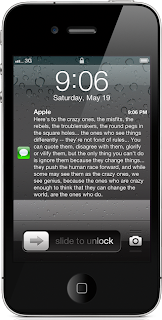The US Copyright Office reviews the Digital Millennium Copyright Act every three years, looking at requests to create temporary changes that act as ersatz loopholes int he law, typically to address continually changing technology standards. This year, the Copyright Office allows jailbreaking of devices like the iPhone, but not for devices like the iPad.
The Office also ruled that consumers can unlock phones purchased before January 2013, but not thereafter. You’ll also be albe to bypass encryption on a DVD to use an excerpt in a non-commercial way, like in a documentary, but it will still be illegal to rip a DVD for your iPad. The rules seem pretty arbitrary, right?
Why can’t we jailbreak iPads? The Librarian of Congress, who can grant these exceptions, “found significant merit to the opposition’s concerns that this aspect of the proposed class was broad and ill-defined, as a wide range of devices might be considered ‘tablets,’ notwithstanding the significant distinctions among them in terms of the way they operate, their intended purposes, and the nature of the applications they can accommodate. For example, an e-book reading device might be considered a ‘tablet,’ as might a handheld video game device or a laptop computer.”
In other words, the people and companies that hold the rights to the content we all want to be able to legally move from our DVDs to our iPads convinced the Librarian of Congress that the word “tablet” was too ill-defined to allow such an exception, as people might start jailbreaking portable gaming consoles, e-readers, and laptops. So, basically, until the Librarian can find enough evidence to define “tablet” computers as things like an iPad, we’re stuck with the older rules. Good thing they go up for re-evaluation in three years.
One step up and two steps back? Perhaps, but it’s good to see that the laws regarding our current technology “rights” are being looked at, and updated, fairly regularly.

